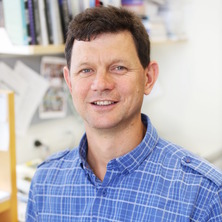Pattern Recognition Receptors in Inflammation and Infection (2016-2020)
Abstract
Innate immunity acts as a homeostatic rheostat. It detects danger in the form of infection, injury or other perturbations, and responds by initiating an inflammatory response designed to limit host damage, eradicate the danger and return the system to homeostasis. Innate immunity is critical to human health for two fundamental reasons. Firstly, dysregulated inflammation initiated by innate immunity lies at the heart of most acute and chronic diseases. Secondly, successful pathogens are able to overcome innate immunity to cause infectious diseases. My research program aims to understand and manipulate innate immune pathways in the context of targeting specific inflammatory pathways as a therapeutic approach for inflammation-driven diseases, as well as boosting host defence to prevent and/or treat infectious diseases. To do so, my research focuses on innate immune cells such as macrophages and epithelial cells, as well as danger sensing receptors such as the Toll-like Receptors (TLRs) and inflammasome-forming Nod-like Receptors (NLRs). My research plan aims to: (1) Use knowledge my laboratory has generated on TLR pathways in macrophages and epithelial cells to develop new approaches to modulate inflammation initiation (e.g. via the novel TLR adaptor SCIMP); inflammation perpetuation (e.g. via the histone deacetylase HDAC7); and inflammation resolution (e.g. via p19/EBI3, a novel IL-12-like cytokine). (2) Characterize new TLR-inducible antimicrobial pathways and subversion of these responses (e.g. Salmonella avoidance of TLR-inducible metal ion trafficking pathways); as well as new host innate immune sensors (e.g. pattern recognition receptors for uropathogenic E. coli), with the goal of tipping the balance in favour of the host during infectious diseases. In so doing, I aim to convert new knowledge of innate immunity into translational approaches for inflammatory and inf...

